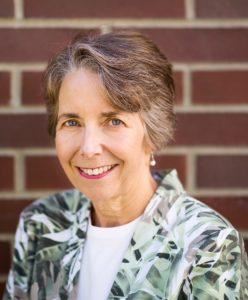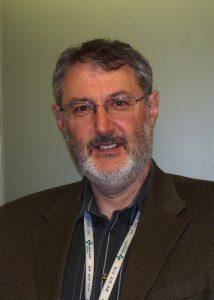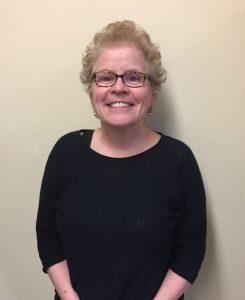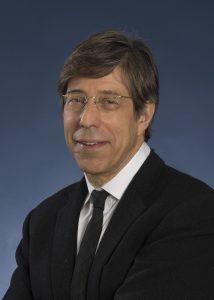Awards for Excellence in Psychosocial Oncology Lifetime Achievement Award
This annual award honours a CAPO/ACOP member who, in the opinion of the Awards Committee and the Board of Directors of the association, has made exceptional and enduring career contributions to Psychosocial Oncology.
 2017 Recipient: Dr. Joan Bottorff
2017 Recipient: Dr. Joan Bottorff
Dr. Joan L. Bottorff is a Professor in the School of Nursing and Director of the Institute for Healthy Living and Chronic Disease Prevention at the University of British Columbia’s Okanagan Campus in Kelowna, British Columbia. She is a UBC Distinguished University Scholar, an Affiliate Scientist at the BC Cancer Agency, a Fellow of the Canadian Academy of Health Sciences, and a Fellow of the American Academy of Nursing. Her research program focuses on health promotion and health behaviour change particularly in the context of cancer prevention. Current projects center on developing more inclusive understandings of health behaviours and the development of gender-sensitive and gender-specific interventions to strengthen tobacco reduction among women and men, and to enhance cancer prevention initiatives targeting other health behaviours. This program of research, supported by the collaborative work of multidisciplinary teams and the involvement of knowledge users, has resulted in the development of innovative approaches to cancer prevention and new opportunities to reduce the burden of cancer.
Awards for Clinical Excellence
This award recognizes individuals who, in the opinion of the Awards Committee and the Board of Directors of the Association, have made significant contributions to Psychosocial Oncology in the areas of clinical work.
 2017 Recipient: Dr. Steven Simpson
2017 Recipient: Dr. Steven Simpson
Dr. Simpson obtained a BSc (Hons) in biochemistry from St. Andrews University, Scotland, in 1976. He completed his PhD in Immunochemistry in 1980 at the University of Wales Medical School in Cardiff, Wales. In 1980, he moved to Canada to study Endocrinology with Dr. Henry Friesen in Winnipeg, Manitoba. He moved to Virginia in 1983 and carried out similar studies with Dr. Maria Dufau of the National Institute for Child Health and Development at Bethesda, Maryland. While in Virginia he was also employed as a research scientist by Hazleton Biotechnology Company.
In 1986, Steve returned to Canada to study Medicine at the University of Calgary. He graduated in 1989 and completed a year of Internal Medicine at University of Calgary. In 1990 he began his residency training in psychiatry and completed his fellowship in the summer of 1994. He is a Clinical Associate Professor of Psychiatry and Oncology at the University of Calgary.
He has clinical appointments in the division of Consultation-Liaison Psychiatry, Calgary Health Region, and the Psychosocial Resources department at the Tom Baker Cancer Centre, Calgary since 1994. He is also a consulting Psychiatrist in the department of Patient and Family Counselling at the Fraser Valley Cancer Centre in Surrey, BC since 2012. He alternates his practice between these two settings.
His research interests are in psycho-oncology. He is currently working on projects looking at fatigue in cancer patients and is part of a team involved in addressing Cancer-Related Cognitive Impairment.
The Award for Education Excellence
This award is made to recognize individuals who, in the opinion of the Awards Committee and the Board of Directors of the association, have made a significant contribution to education and training in psychosocial oncology in Canada.
 2017 Recipient: Joan Hamilton
2017 Recipient: Joan Hamilton
Joan Hamilton is a clinical nurse specialist in cancer care in the Queen Elizabeth Health Science Centre of the Nova Scotia Health Authority in Halifax.
Joan did her undergrad nursing at Dalhousie and her Master’s of Science in Nursing at McGill in palliative care nursing.
Joan started her career in Vancouver in hematology and bone marrow transplant. She has worked in St. John’s Newfoundland, Halifax, Hamilton and Montreal in oncology and palliative care.
The focus of Joan’s work as a CNS is helping advance nursing practice through nursing education, mentoring, program development, research utilization, the integration of CPG, and small project group work with front line nurses. Joan’s areas of interest/expertise include cancer-related fatigue, sexual health changes, vaginal dilation teaching post pelvic radiation, helping parents explaining serious illness and death to children, advancing nurses communication skills, managing patient distress, infertility risk reduction and mouthcare.
Joan is a member of the cancer care psychosocial team and is an adjunct professor at Dalhousie. As well as being a member of CAPO, she is also a member of the Canadian Association of Nurses in Oncology as well as several of professional associations.
Joan has been in Halifax over the last 25 years where she and her husband have raised their children.
The CIHR – Institute for Cancer Research: CAPO Research Excellence Award
This award, formerly called the CAPO Award for Research Excellence was rebranded this year through generous support from The CIHR – Institute for Cancer Research. The Institute has signed a three-year agreement to fund this prestigious award.
The award is made to recognize an individual who, in the opinion of the Awards Committee and the Board of Directors of the association, has made a significant research contribution to Psychosocial Oncology.
 2017 Recipient: Dr. Gary Rodin
2017 Recipient: Dr. Gary Rodin
Gary Rodin is the University of Toronto/University Health Network Harold and Shirley Lederman Chair in Psychosocial Oncology and Palliative Care and Head of the Department of Supportive Care at Princess Margaret Cancer Centre in Toronto, Canada. Dr. Rodin is also the Director of the Global Institute of Psychosocial, Palliative and End-of-Life Care (GIPPEC) and a Professor of Psychiatry at the University of Toronto. He leads a clinical and research program on the psychosocial dimensions of advanced and terminal disease and on the development and evaluation of novel interventions to improve the quality of life and the quality of dying and death in this population. These integrated psychosocial and palliative interventions include Managing Cancer and Living Meaningfully (CALM), a supportive-expressive psychotherapeutic treatment for patients with metastatic cancer and their caregivers, and an integrated emotion and symptom-focused intervention for individuals diagnosed with life-threatening hematological malignancies. Through GIPPEC, a University of Toronto Interdisciplinary Institute based at Princess Margaret, Dr. Rodin has established international partnerships in Europe, Asia, Africa and the Middle East to contribute to global access to palliative and supportive care for patients and families facing advanced disease and the end of life. He has published widely in these areas and is recognized internationally for his efforts to improve the rigor of research and the effectiveness and availability of psychosocial and palliative interventions.
The CIHR – Institute for Cancer Research New Investigator Award
This award, formerly called the CAPO Early Career Award, was rebranded this year through generous support from The CIHR – Institute for Cancer Research. The Institute has signed a three-year agreement to fund this award.
The award honours a new investigator for outstanding contributions to research in the field of psychosocial oncology.
 2017 Recipient: Dr. Shane Sinclair
2017 Recipient: Dr. Shane Sinclair
Dr. Shane Sinclair is an Associate Professor and Cancer Care Research Professor with the University of Calgary, Faculty of Nursing. His research focuses on psychosocial and spiritual issues within oncology and palliative care, including his nationally funded program of research on compassion. Dr. Sinclair is a former Canadian Institutes of Health Research Postdoctoral Fellow (University of Manitoba), current President of the Canadian Association of Psychosocial Oncology, a recipient of the Canadian Association for Spiritual Care Award of Excellence in Research, a top 40 under 40 awardee and a recipient of the International Psychosocial Oncology Society New Investigator Award. Dr. Sinclair’s research on spiritual care has been instrumental in enhancing research capacity within the discipline of spiritual care, establishing an evidence based approach to spiritual care practice, and has contributed to policy development on a global level. His CIHR funded program of research on compassion developed the first patient informed empirical model of compassion; delineated between patients’ perspectives of sympathy, empathy and compassion; led to the reconceptualization of compassion fatigue and self compassion, and is currently focused on the development and validation of a patient reported compassion measure.
The Student Travel Conference Award
This annual award is given to honour a CAPO student member (or recent student) who has demonstrated excellence in his or her submission of an original paper. It is open to clinicians and researchers. The focus of the manuscript can be research, clinical, and/or education.
2017 Recipient: Nicole Racine
Nicole Racine has been awarded the Student Travel Award for her paper titled: Predicting Health-Related Quality of Life in Pediatric Cancer Survivors: Contributions to Parental Psychological Distress and Family Psychosocial Risk.